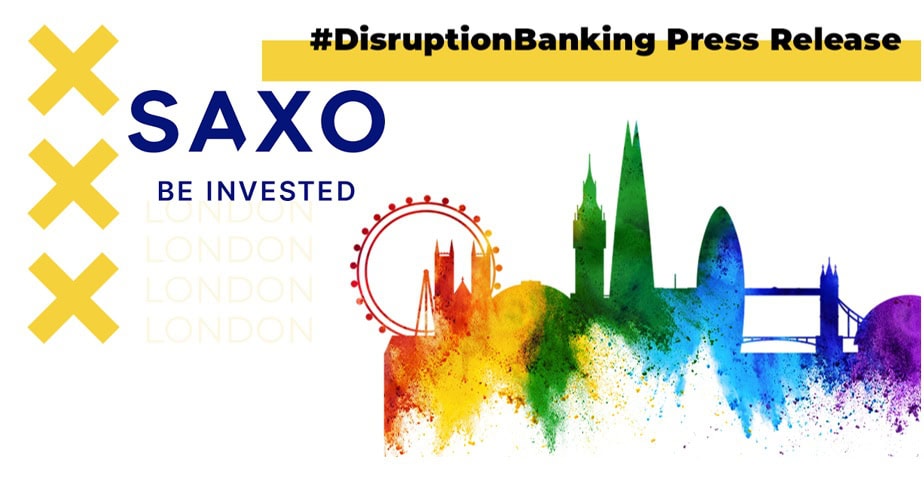Aviva offers a wide range of pensions and provides workplace pensions schemes to a huge number of employers across the UK. It also offers a SIPP (self-invested personal pension) which is what we’ll be looking at below.
If you’re feeling puzzled about your pension, tap through to our retirement planner so we can help make sure you’re on the right path 👉 https://t.co/FF3cpGSgBk#Pensions #ItTakesAviva pic.twitter.com/OhBOCj8gg4
— Aviva UK (@AvivaUK) April 24, 2023
Why consider Aviva’s pensions?
Here at Disruption Banking, we were interested in reviewing Aviva for three main reasons.
Firstly, Aviva is one of the largest pensions providers in the UK. More than 15.5 million people in the country have savings or retirement plans with the company. Its own history dates back as far as 1696. With that kind of size and longevity, it is only natural that it will appear on many people’s potential provider list when considering where to invest for the future.
Secondly, the company regularly promotes its ESG credentials. As this becomes an increasing concern for consumers, it is a regular selling point for other providers and another reason Aviva will appear high up in many searches.
Finally, Aviva has been helping test the UK governments’ pensions dashboards, which we recently wrote about. Being at the forefront of a fundamental improvement for the UK’s retirement planning, the company should find itself ahead of the pack for providing valuable data to its customers.
Whenever it finally arrives, the UK’s #pensions dashboards could collate state, private, and company pensions data in one space. In so doing, it could fundamentally change people’s retirement planning.https://t.co/jPeA1Tdtgp
— #DisruptionBanking (@DisruptionBank) June 2, 2023
What are the pension plans like?
Aviva offer two ways to open a SIPP. Customers can either commit to a minimum investment of £25 a month or make a one-off investment of £5,000. Once you open an account, it can also combine or transfer pensions from other schemes into one place to consolidate your retirement savings.
From this simple starting point, customers will need to choose one of four investment options. We like the fact this allows for people ranging from complete beginners to pros to invest in a way that meets their own knowledge and confidence.
At the basic level, you can choose a ready-made fund. This then provides two main choices – growth or income, with the former offering 4 levels of investment risk. Complete factsheets on each fund are available with a breakdown of asset types, portfolio stats and past performance.
For more experienced investors, Aviva offers its own fund shortlist chosen by its in-house experts. There is a choice of 85 funds to select from with a mix of active or passive management. You can narrow this down further to only show funds which meet Aviva’s ESG criteria. Past performance and links to fund factsheets are easy to navigate and search.
The most confident investors can choose from a full range of 4,991 funds to build your own portfolio. A handy search filter allows users to narrow down by topics such as sector or risk factor, and the usual performance and fact sheets are easy to delve into.
Finally, Aviva offers the potential to invest directly in shares listed on the London Stock Exchange, ETFs, and Investment Trusts. There is £7.50 charge for buying and selling shares or exchange traded investments, and a 0.40% share charge on investments capped at £120 a year.
What are the pension plan fees like?
To start with, you’ll pay a management fee of 0.40% a year which drops to 0.35% on savings over £50,000. There are then fund fees depending on which investment choice you make. For the ready-made funds, these are around 0.35 – 0.37% depending on the risk level.
This makes the fees average around 0.75%. Compared with other providers this is about average. We recently reviewed PensionBee which has funds with total fees of around 0.50% but go up to similar levels for more personalised choices such as ESG investments.
In the burgeoning world of #investment and #pensions apps, interactive investor has carved out a slice of both sectors. Some people want more control over their retirement investments, and this is where ii is ahead of the curve.https://t.co/R5z4b9GHif
— #DisruptionBanking (@DisruptionBank) May 26, 2023
For much larger pension pots with direct investment options, providers offering flat fees are likely to come out cheaper. We recently reviewed interactive investor which has a flat fee of just £12.99. If you are investing over £100,000 then flat fees are almost certainly going to leave you better off.
Is Aviva a “good” pensions provider?
Of course, definitions of “good” can be tricky.
Aviva is generally regarded highly for its ESG commitments and provides complete annual sustainability reports here. Indeed, The Good Shopping Guide rates it number one with particular emphasis on its transparency and environment categories. It also appears on many other lists of top ethical investor platforms and is listed as one of the top 9 pension providers 2023 by Good with Money.
Make your most powerful move for the planet – switch to a green pension 💪. Here are 9 ethical pension funds to consider: https://t.co/NV0U0SrdOz @pensionbee @nest_co_uk @getpenfold @AvivaUK @RoyalLondon #ethicalpensions #sustainablepensions @MMMoneyMatter #pensionswithintention pic.twitter.com/eL8UykcdXa
— Good With Money (@GoodMoneyGirl) May 12, 2023
For many other people, “good” will come down to how they treat you as a customer. Here unfortunately, Aviva faces some criticism.
On TrustPilot, the company receives a respectable 4.2 overall. But a growing number of reviewers point to increasing frustration at poor customer service. More alarmingly, SmartMoneyPeople gives a rating of just 1.88 with 73% or reviews giving just 1 star. Again, poor customer service seems to be the most frequent complaint.
Having said that, there are many things we do like about the Aviva pension plans. The fees make it a good choice for people with a mid-range investment portfolio of around £50,000. Importantly, they are presented transparently so there shouldn’t be any nasty surprises.
The other aspect we particularly like is the layout of the website. For drilling down into details, Aviva does a great job. Not only that, for those wanting to dip their toes into more personalised portfolio building, we found the website much more user-friendly with a cleaner interface to navigate than rivals like interactive investor. That interface translates into a user-friendly dashboard to track your investments which the company is dedicated to continually improving on.
Who is the Aviva pension plan best for?
Aviva has won awards from Boring Money (Best Buy Pension 2023) and Your Money (Best Big Portfolio and Best for Beginners 2023).
We would say that for someone with an investment pot up to around £50,000 looking to build a more personalised retirement portfolio, Aviva provides a great service. All the information you could want is easy to find without the need for flashy graphics and the fees are competitive with rivals and transparent.
As ever, we would always recommend looking at a range of providers before making your final decision. User experience is subjective, and it is important to see what you find most comfortable for tracking such an important investment.
The state #pension will only go so far in your retirement. A good, private pension can protect you and, if you get it right, can go a long way. Portfolio #diversification will play a key role in getting secure, long-term performance.https://t.co/SjFu0aYjfe
— #DisruptionBanking (@DisruptionBank) May 17, 2023
You should also consider the level of support you might need. Pensions are tricky even for the experts, as we have written about in the past, and you should always seek financial advice specific to your own situation.
Author: Mike Davies
Disclaimer:
The Editorial Team at #DisruptionBanking have taken all precautions to ensure that no persons or organisations have been adversely affected or offered any sort of financial advice in this article. This article is most definitely not financial advice.















